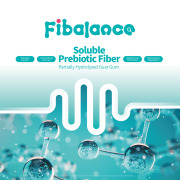Sodium Bicarbonate
Product description
Sodium bicarbonate (IUPAC name: sodium hydrogen carbonate), commonly known as baking soda. Sodium bicarbonate is a white solid that is crystalline but often appears as a fine powder. It has a slightly salty, alkaline taste resembling that of washing soda (sodium carbonate). The natural mineral form is nahcolite. It is a component of the mineral natron and is found dissolved in many mineral springs.
APPLICATION:
Cooking
In cooking, sodium bicarbonate, referred to as baking soda, is primarily used in baking as a leavening agent. It reacts with acidic components in batters, releasing carbon dioxide, which causes expansion of the batter and forms the characteristic texture and grain in pancakes, cakes, quick breads, soda bread, and other baked and fried foods.
Acidic compounds that induce this reaction include phosphates, cream of tartar, lemon juice, yogurt, buttermilk, cocoa and vinegar.
Baking soda may be used together with sourdough, which is acidic, making a lighter product with a less acid taste.
Baking Powder
Baking powder, also sold for cooking, contains around 30% of bicarbonate, and various acidic ingredients which are activated by the addition of water, without the need for additional acids in the cooking medium. Many forms of baking powder contain sodium bicarbonate combined with calcium acid phosphate, sodium aluminium phosphate or cream of tartar. Baking soda is alkaline; the acid used in baking powder avoids a metallic taste when the chemical change during baking creates sodium carbonate.
Read more
Specifications
| Categories | pH Control Agents and Acidulants |
|---|---|
| Sales markets | Western Europe; Eastern Europe; Asia |
| Supplied from | India |
Sodium Bicarbonate









![Di Calcium Phosphate [E341(ii)]](/47/product/103/81/45/p1038145th_S.jpg)






